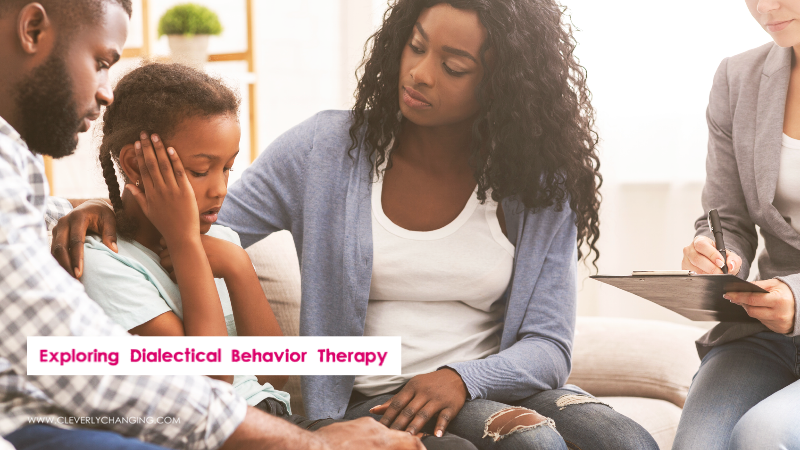Dialectical behavior therapy (DBT) is a type of cognitive-behavioral therapy that focuses on helping individuals change their thoughts and behaviors in order to manage difficult emotions. DBT was developed by Dr. Marsha Linehan in the 1980s as a way to treat those with borderline personality disorder, but has since been found to be effective in treating other mental health issues such as depression, anxiety, substance use disorders, post-traumatic stress disorder, and eating disorders. Let’s take a look at how DBT works and why it’s so beneficial
How DBT Works
Dialectical behavior therapy works by teaching individuals how to identify and change unhelpful patterns of thinking and behaviors. It also encourages people to accept themselves and the world around them even when they don’t like or agree with it. The main focus of DBT is on developing skills in four key areas: mindfulness, emotional regulation, interpersonal effectiveness, and distress tolerance.
Mindfulness
Mindfulness is all about being aware of the present moment without judgment or becoming overwhelmed by your thoughts or feelings. It’s about learning to observe your own thoughts without getting caught up in them or trying to control them. The goal of mindfulness is to cultivate an attitude of acceptance and non-judgment towards yourself and the world around you. This includes accepting negative emotions instead of trying to push them away or get rid of them altogether.
Emotional Regulation
Emotional regulation involves learning how to recognize and respond appropriately to emotions so that you can move through difficult situations more effectively. This means learning how to identify when you’re feeling overwhelmed or out of control so that you can take steps to manage your emotions in a healthy way. This could include using coping skills such as deep breathing or relaxation exercises before reacting impulsively.

Interpersonal Effectiveness
Interpersonal effectiveness focuses on helping individuals develop effective communication skills in order to achieve their goals while maintaining self-respect. This includes learning how to set boundaries with others, express your needs assertively, negotiate compromise when needed, and handle criticism gracefully.
Distress Tolerance
Distress tolerance involves learning how to accept challenging situations that cannot be changed while still finding ways to cope with the discomfort they bring up. It’s about recognizing that things may not always go according to plan but still finding ways to move forward in spite of this reality rather than getting stuck in ruminating on what could have been done differently in the past or worrying about what might happen in the future.
Benefits of DBT
DBT has been found through research studies to be highly effective for those suffering from mental health issues such as borderline personality disorder and depression. One study found that after 12 weeks of DBT treatment for women with borderline personality disorder, 75% reported significant improvements in symptoms such as suicidal thinking and non-suicidal self-injury compared with only 25% who received treatment as usual (TAU). Other studies have also shown that DBT can reduce depression symptoms among adolescents and improve quality of life among those suffering from chronic pain conditions like fibromyalgia syndrome. Additionally, research suggests that DBT may even be able to reduce recidivism rates among those who have committed crimes due to mental health issues or substance use disorders.
Dialectical behavior therapy is a powerful tool for helping individuals manage difficult emotions effectively while also reducing destructive behaviors associated with mental health issues like borderline personality disorder and depression. Through its four core modules—mindfulness; distress tolerance; emotion regulation; and interpersonal effectiveness—DBT equips individuals with the skills needed for living a healthier life free from self-destructive behaviors or extreme emotional reactions.. If you’re considering seeking help for any mental health issue you may have, it’s worth looking into dialectical behavior therapy as an option – it could make all the difference.

